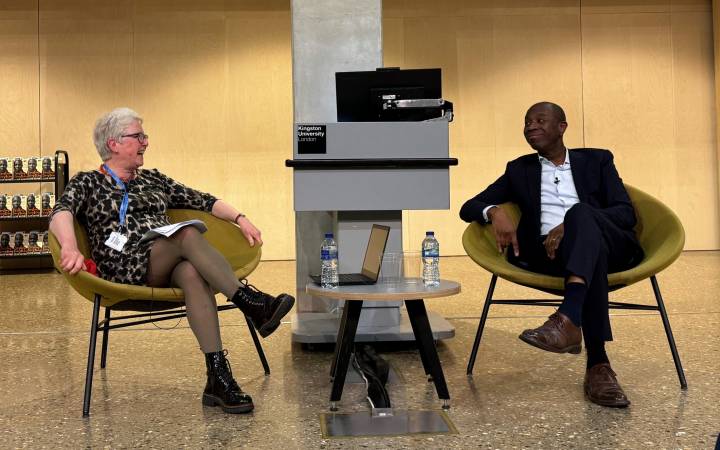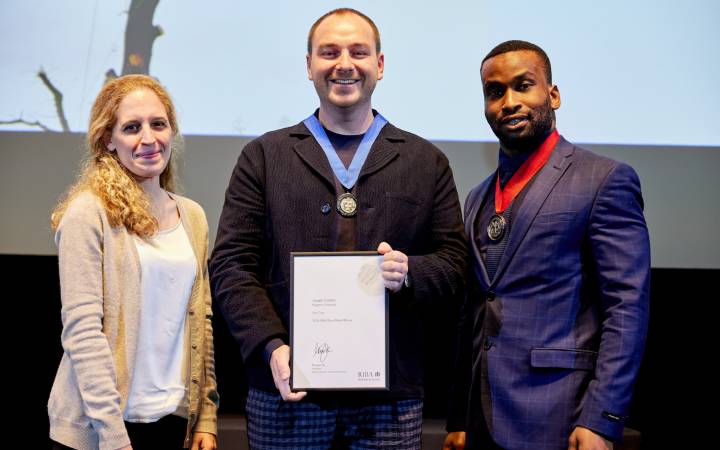New social enterprise set to lead to significant improvements in stroke rehabilitation
Posted Monday 16 December 2013
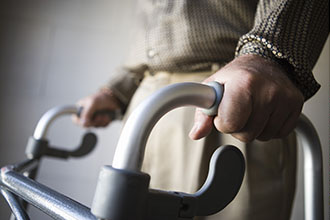 A pioneering programme that empowers stroke survivors to become more involved in their own rehabilitation has been officially launched as a social enterprise.
A pioneering programme that empowers stroke survivors to become more involved in their own rehabilitation has been officially launched as a social enterprise.
Bridges Self-Management Limited is the culmination of an eight-year project led by rehabilitation expert Dr Fiona Jones from the Faculty of Health, Social Care and Education at Kingston University and St George's, University of London.
Dr Jones has spearheaded the development of the programme to help stroke survivors back on the road to greater confidence and independence. It has already been adopted by healthcare providers across the United Kingdom and has even been rolled out as far afield as New Zealand.
The spin-off company, established with support from business development experts based in Kingston University's Enterprise Department, aims to increase Bridges' reach and impact so greater numbers of people can benefit from the training and tools offered. It was formed after securing funding from Britain's leading provider of social enterprise support, UnLtd, and attracting external investment.
With an estimated 150,000 people in the United Kingdom experiencing a stroke each year and many survivors living with disabilities as a result, the condition placed enormous pressure on the healthcare system, Dr Jones said. "Self-management can be an effective way of helping people once they are discharged from hospital, while also reducing some of the burden on the limited resources available for rehabilitation services," she added. "Bridges not only supports survivors dealing with the challenges of everyday life but also addresses their confidence and long-term needs - frequently identified as unmet by people affected by stroke and their carers."
As well as helping patients manage the physical challenges they face, the programme encourages them to set personal targets and lets them take charge of their rehabilitation moving forward. The initiative had the potential to help greater numbers of stroke survivors realise their own resourcefulness so they could be less reliant on medical and rehabilitation support when they returned home, Dr Jones said.
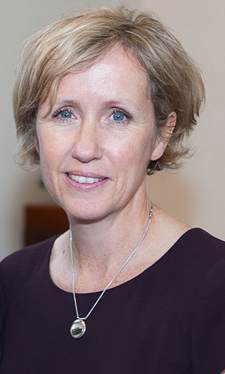 The programme consists of three main components - workshops providing in-depth training for health professionals; one-to-one sessions where individual patients learn how to develop their self-management skills; and a workbook enabling stroke survivors to set personal targets, chart their achievements and draw inspiration from others who have confronted similar challenges.
The programme consists of three main components - workshops providing in-depth training for health professionals; one-to-one sessions where individual patients learn how to develop their self-management skills; and a workbook enabling stroke survivors to set personal targets, chart their achievements and draw inspiration from others who have confronted similar challenges.
Traditionally, much of the resource for stroke rehabilitation had been geared towards helping patients through the initial phases of their recovery and dealing with immediate barriers to independence, Dr Jones said. "Generally, there has been less emphasis on the psychological well-being of patients and their future needs," she explained. "This can lead to stroke survivors feeling abandoned and ill-prepared for coping with everyday life once they are discharged from regular therapy."
Dr Jones, who has more than 25 years' experience working as a physiotherapist specialising in neuro-rehabilitation, first formalised her ideas in 2005, through a scheme at that time known as Stepping Out. The training element of Bridges has been running since 2010 and Dr Jones has now delivered almost 60 workshops for stroke teams throughout the United Kingdom.
"Research shows that self-management fails where healthcare professionals don't have the knowledge or experience to advocate that model of care, so Bridges teaches these specialists to share decision making and to support patients to play an active part in their rehabilitation," she said. "Everything we have done has been informed by an advisory group of stroke survivors who have been pivotal in helping shape the programme."
Kingston University's Pro Vice-Chancellor for Research and Enterprise, Professor Penny Sparke, described the launch of Bridges as a social enterprise as an outstanding example of the benefits of harnessing the entrepreneurial potential of academic expertise. "Bridges epitomises what universities do best - combining research knowledge with business innovation to benefit communities and advance wellbeing," she said. "The evolution of this social enterprise - the first spin-off company to emanate from Kingston and St George's Faculty of Health, Social Care and Education - will not only increase the reach of this model of rehabilitation but also reinvest resources into advancing stroke research."
Bridges chief executive William Nicholson, a senior accountant who initially got involved with the programme as a business mentor, foresees enormous potential for the company to develop further. "While Bridges has been based on the needs of stroke patients, the principles could well be applied to people with other long-term conditions and we are eager to explore this possibility," he said.
Bridges was adopted as a priority project in the National Stroke Improvement Plan in 2009 and was cited as a case study in NHS London's Life After Stroke commissioning guidance the following year. Dr Jones won the Stroke Association's Excellence in Stroke Care Award in 2009.
- Find out more about enterprise support at Kingston University.
- Find out more about research in the Faculty of Health, Social Care and Education at Kingston University and St George's, University of London.
- Find out more about the Bridges stroke self-management programme.
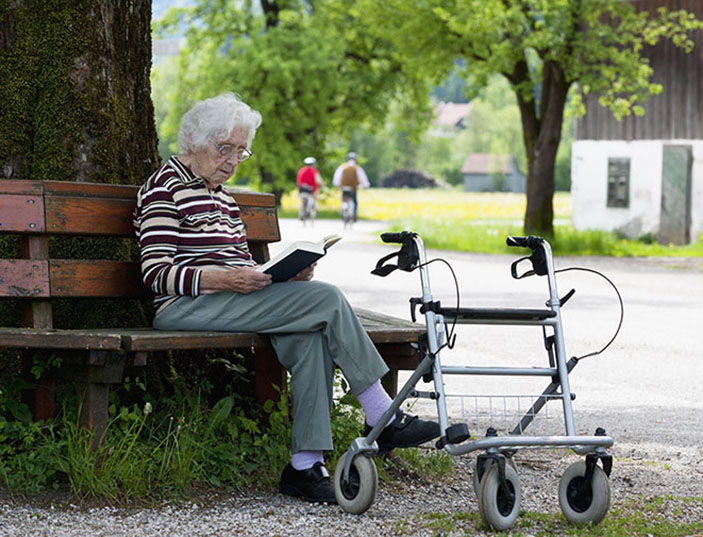
Contact us
General enquiries:
Journalists only:
- Communications team
Tel: +44 (0)20 8417 3034
Email us

